

Annual Report 2024–25
mission Kia whakamutua atu te whakahāwini kararehe
To end the exploitation of animals
For nearly a century, SAFE has been the nation’s leading voice for animal rights. Our goal is to inspire institutional, political, and societal shifts that reduce animals’ suffering, improve their lives, and ultimately, end their exploitation.
We’re a group of everyday New Zealanders who are empowering people to choose a different path – one that values compassion and respects the health of people, animals, and the planet.

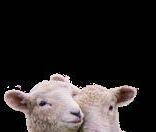
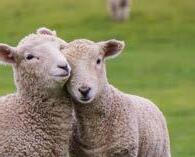
From our Chair

Gareth Hughes SAFE Chair
On 7 March, 2025, Homebush Milo competed for the final time at Christchurch’s Addington Raceway. It wasn’t Milo's last race because he was retiring. In fact, quite the opposite; his career as a racing greyhound killed him. Moments after winning the race, he was pronounced dead.
At just under two years old, Homebush Milo deserved better.
It’s stories like Milo’s that fuelled SAFE’s relentless campaign to ban greyhound racing. Finally, in December 2024, after four years of unwavering advocacy, Winston Peters made the announcement: Greyhound racing would be banned in Aotearoa. For the SAFE team, it was a monumental victory, and for the thousands of dogs bred for a deadly “sport”, this decision will be life-changing. There will be a 20-month phase out period for the ban, and we’ll all be keenly awaiting the closing of another grim chapter in how Aotearoa treats animals.
SAFE has an impressive track record of winning campaigns and improving the lives of animals, which is testament to the hard work of Debra and her team. I’m also pleased to share that SAFE has continued to be recognised as a key player in protecting our live export ban. This was strengthened by a coalition of groups who obtained signatures for the petition, which was handed over in June 2024.
It’s a privilege to lead the governance of SAFE with our passionate and experienced Board members. To comply with the Incorporated Societies Act changes, we made an amendment to SAFE’s constitution, which was accepted at the 2024 AGM. I want to give special thanks to former Board member Marcelo Rodriguez Ferrere, and Steven Moe from Parry Field Lawyers, who both contributed significantly to this effort. Following this procedural change, the Board has been considering other possible changes to ensure SAFE is set up well into the future to advocate for animals.
Thank you to our members, supporters, and generous donors who support our important mahi for animals. We are so grateful for your enduring support.
Ngā mihi.
From our CEO

Debra Ashton SAFE Chief Executive Officer
If the past year at SAFE has taught me one thing, it’s that the fight for animal rights is never linear. We have wins, we have losses, and we have setbacks.
However, through this winding journey our vision remains the same: As an organisation, we’re working to end the exploitation of animals. It’s a long road full of obstacles and unexpected twists and turns. While our ‘how’ may change along the way, our ‘why’ is steady: Animals deserve to live free from exploitation, and we are relentless in ensuring that happens.
SAFE’s endurance can be seen in the four-yearlong campaign we undertook for a greyhound racing ban. We remained steadfast, and now we have the promise that these beautiful dogs will no longer be put at risk of injury or death for the sake of entertainment. In the lead-up to the ban in July 2026, it’s the Government’s responsibility to ensure a smooth transition for these dogs, supporting their rehabilitation and rehoming. SAFE will be cheering on the kind people who open their doors.
A resilient organisation requires a strong identity and a robust plan. To ensure SAFE continues to be recognised as a leader in Aotearoa’s animal rights movement, we kicked off work to review SAFE’s identity and refresh our brand. Work is underway, and we anticipate launching our reinvigorated identity at the end of the 2025–26 financial year.
This year, we also held to account those who violate the standards set out by the Animal Welfare Act 1999 when raising animals for food. We shone a light on these injustices through multiple avenues. Funds from the Future Foods Foundation enabled us to increase awareness of cruel mud farming with a strong marketing campaign. These funds also helped us build a case for the Commerce Commission to review the misleading labels on cage eggs.
The financial contributions and ongoing loyalty of our generous supporters are what keep us going – so thank you for your incredible support. You help us ensure SAFE continues to be a strong voice for animals. We couldn’t do it without you.
He waka eke noa – We’re all in this together.
Through the lens SAFE’s year
In every major moment for animal rights in Aotearoa, we were there. Showing up, raising our voices, and challenging the status quo. Here are some highlights from our year.

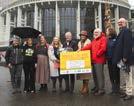

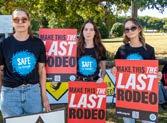
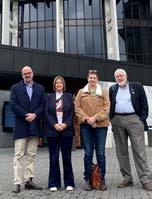
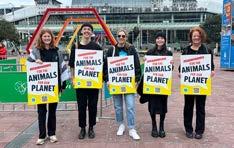
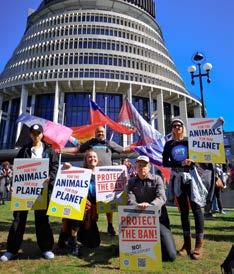
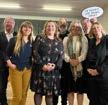

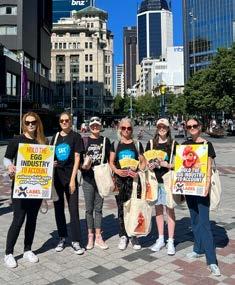
Photo: Matt Coffey
The cruelty we’re up against
Every year in Aotearoa, over 160 million land animals and countless aquatic animals are raised for food. On top of this are cruel imports, the hundreds of thousands exploited for research and education, and the thousands used for entertainment.
FOR MAXIMUM PROFITABILITY, AGRICULTURE PRACTICES ROUTINELY INCLUDE:
• Limiting and/or preventing an animal's natural behaviours
• Filthy conditions
• Taking a mother’s young and/or killing babies soon after birth
• Artificial insemination
• Preventing mothers from caring for their young
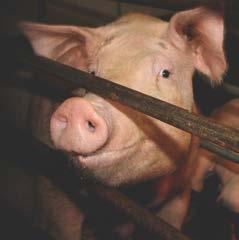
• Breeding for maximum, often painful, growth
We can do better than this – and that’s why SAFE exists.
MORE THAN
160 million
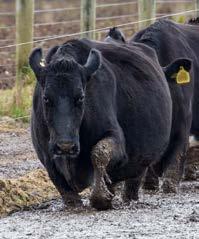
LAND ANIMALS ARE RAISED FOR FOOD IN AOTEAROA EACH YEAR.
Photo: Matt Coffey
“To our SAFE supporters –thank you. We’re so grateful for your voice, for your belief in us, and for your endurance. Together, our advocacy makes a tangible difference for animals, ensuring their lives matter, and their collective futures look brighter.
Debra Ashton, SAFE CEO

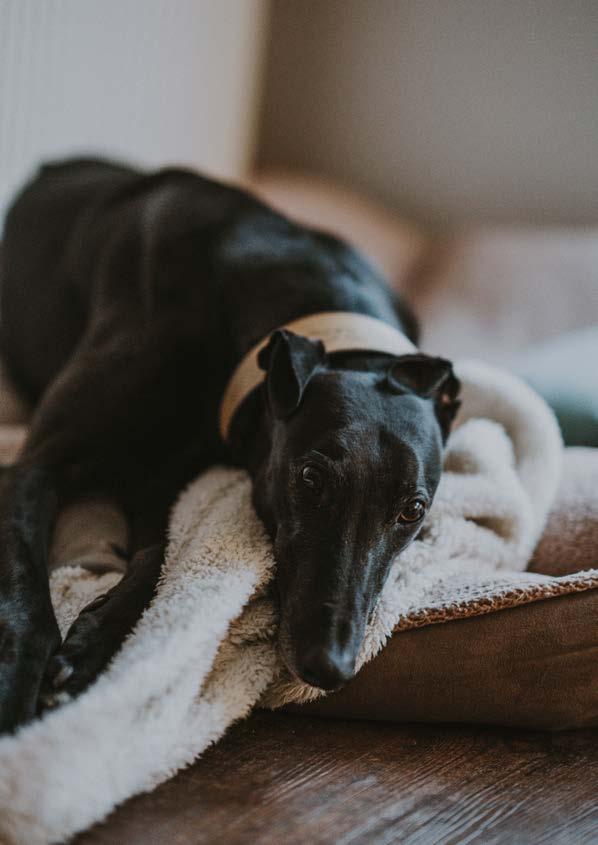
Advocating for animals in entertainment
Greyhound racing It’s finally goodbye
We did it – greyhounds will no longer face cruelty on the tracks.
On 10 December, 2024, Racing Minister Winston Peters announced what we’d long been pushing for: Greyhound racing would be banned in Aotearoa following a 20-month phase out period.
This decision is a major victory for the thousands of greyhounds that are forced to endure this brutal ‘sport’ every year. It’s also a monumental win for animal rights in Aotearoa, reminding us that relentless advocacy works
The strategies that got us there
Our work began prior to this past year, but in the 2024–25 financial year, we:
Kept the media informed
Our media releases kept greyhound deaths in the headlines. This steadfastness intensified the political pressure and public sentiment shifts that led to the ban.
Showed up to protests
On 9 June, 2024, we joined Direct Animal Action for their annual Silver Collar Protest at Manukau Sports Bowl. Then on 14 September, 2024, we joined Christchurch Animal Save to protest the Greyhound Racing New Zealand annual awards night in Ōtautahi. We held placards for every dog they had killed so far in the racing season, posing the question: “What’s to celebrate?”
Built online opposition
We relentlessly advocated for greyhounds across our social media channels. Our video on the death of greyhound Brockie’s Rocket went viral, reaching over 6 million views on Instagram.
We’re grateful to the Greyhound Racing Protection League NZ, who began this vital movement.

SAFE’s Isa Kliewer and Emma Brodie joined activists from Christchurch Animal Save to protest the Greyhound Racing New Zealand annual awards night in Ōtautahi.
Photo: Matt Coffey
Rodeo Let’s get rid of it

Just like greyhound racing, rodeo has no place in Aotearoa (or anywhere for that matter).
Every summer, gentle-natured animals –including horses, bulls, steers, and calves – are forced into terrifying situations where they are singled out, provoked with painful instruments, and tormented. Their suffering is anthropomorphised and their fear is co-opted for the sake of ‘entertaining’ a minority of people.
No animal should have to face psychological trauma and catastrophic injuries, period.
SAFE is calling for a ban on all rodeo events.
Rodeo breaches an animal’s legal rights
Most rodeo practices breach the legal rights of animals under the Animal Welfare Act 1999, as they cause unnecessary pain and distress, and sometimes even lead to death. Shockingly, five animals died over the 2024–25 summer rodeo season.
The National Animal Welfare Advisory Committee (NAWAC) is in the process of revising the code of welfare for rodeo. This process has been underway for nearly three years, and we’re asking that NAWAC expedite public consultation. When we’re able to have our say, we’ll tell them: Ban it for good.
Rodeo has no place in Aotearoa
Rodeo has no place in our society. It has already been banned from all Auckland Council-owned land, and polling has shown that most Kiwis support an outright ban. Simply put, rodeo has no social license here.
What we’re doing to ban rodeo
Building a groundswell of support
More than 7,000 people directly supported our mission to end rodeo, donating to our campaign and sending emails to both the minister responsible for animal welfare and NAWAC.
Advertising
Our advertising campaigns targeted where we’d get the most eyes on our cause. We had a fullpage advertisement in The Post in February 2025, asking policymakers to take urgent action to ban rodeo. We also had two digital billboards in Te Whanganui-a-Tara in February 2025, and one digital billboard in Kirikiriroa in March 2025.
Protesting
In March 2025, we led a coordinated protest at the national rodeo finals in Kihikihi, Waikato. Our signs sent messages such as “End rodeo cruelty” and “Stop tormenting animals”. Also in March, we wrote to the New Zealand Rural Games Trust urging them to exclude rodeo competitors from all future NZ Rural Sports Awards.
Making our cause known
Maintaining a strong media presence is critical to keeping our message on people's minds.
• On 7 March, 2025, our Rodeo Campaign Manager Emily Hall spoke on More FM, pushing for rodeo competitors to be excluded from the NZ Rural Sports Awards.
• On 17 March, 2025, Emily was interviewed by Lisa Owen on RNZ’s Checkpoint.
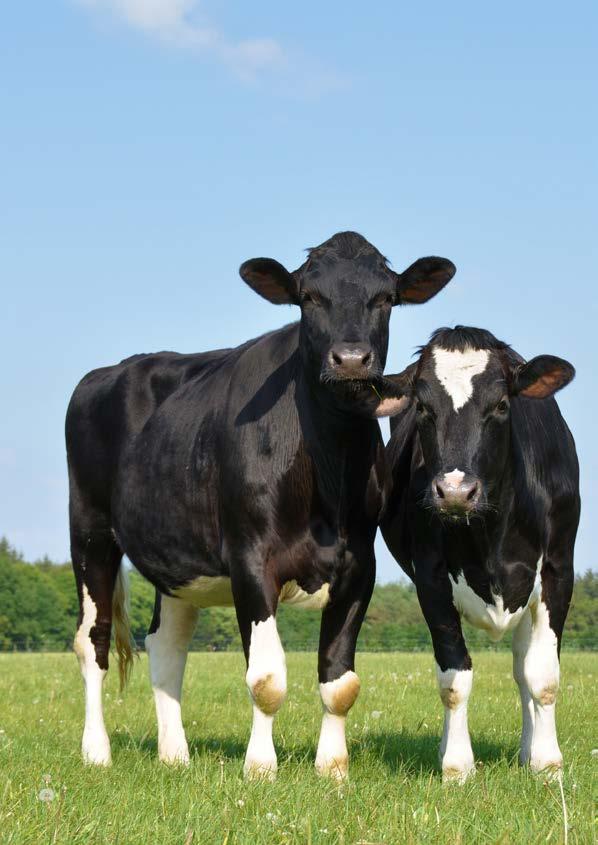
Facing farmed animal cruelty
Live export Leave it in the past
We finally left it behind. But now, the Government is threatening to bring it back.
For decades, evidence has shown us that animals on live export journeys – often travelling upwards of 15,000km by sea – endure gruelling and harmful conditions.
On 30 April, 2023, Aotearoa finally faced this catastrophe, passing a world-leading ban on the live export of cows, sheep, deer, and goats by sea.
However, this historic victory for animals is under threat as the Government attempts to reinstate this horrific industry.
How we’re protecting the ban
Finding strength in numbers
• Together with Animals Aotearoa, End Live Export NZ, Helping You Help Animals (HUHA), SPCA, Veterinarians for Animal Welfare Aotearoa (VAWA), and World Animal Protection, we secured 57,357 signatures to protect the ban on live export, and jointly handed the petition over at Parliament on 25 June, 2024.
• On International Ban Live Exports Awareness Day (14 June, 2024), we signed on to a joint open letter (led by World Animal Protection), addressed to the National-led coalition Government and published in The New Zealand Herald.
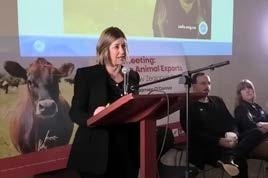
Political engagement
• On 1 August, 2024, our CEO Debra Ashton, World Animal Protection’s Ben Pearson, and animal welfare experts Dr Lynn Simpson and Dr John Hellström ONZM met with MPs to reaffirm our united stand against live export by sea.
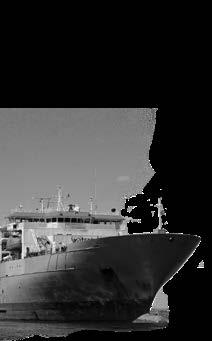
• On 12 August, 2024, Debra was invited to speak at a public meeting hosted by Labour MP Helen White to discuss why it’s so important that we fight to protect the ban on live export. We spoke to the horrific conditions animals endure on board live export ships and the inadequate (or nonexistent) welfare standards in destination countries, highlighting that a ’gold standard’ of animal welfare is impossible to achieve.

On 2 September, 2020, the Gulf Live Export 1 capsized and sank off the coast of Japan on its way to China. The 5,867 cows from Aotearoa died at sea, and 41 of the 43 crew members, including two New Zealanders, also lost their lives.
Protect the ban: Debra spoke at a public meeting hosted by Labour MP Helen White, discussing why it's vital we protect the ban on live export.
The egg industry Experts in deception
Hens continue to suffer in shamefully unacceptable ‘colony’ cages.
Over 1.2 million hens across Aotearoa are being farmed for their eggs in dark, dirty, and overcrowded cages that are no better than the battery cages we finally had banned in 2023.
The use of these cages breaches the legal rights of hens because they’re unable to express normal behaviours. The cage egg industry knows consumers don’t support these practices, so deliberately omit the word ‘cage’ from their packaging. Instead, they mislead consumers by using vague terms such as ‘colony’ or ‘colony laid’ to market their cruel products.
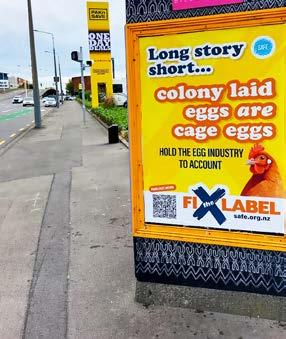
We asked: Fix the Label
Our Fix the Label campaign was a nationwide awareness campaign that we launched in January 2025. Its purpose was to draw attention to the shockingly misleading packaging labels in Aotearoa’s egg industry.
Proof in the polls
• We commissioned a poll that demonstrated 84% of people didn’t understand that ‘colony laid’ eggs are from caged hens.
• 72% of people agreed that, by omitting the word ‘caged’, the current labelling is misleading.
Taking it to the Commerce Commission
By hiding the dirty truth behind misleading labels, the cage egg industry masks the brutal reality of cage farming. Kiwis deserve to know hens are still suffering. Without knowledge,
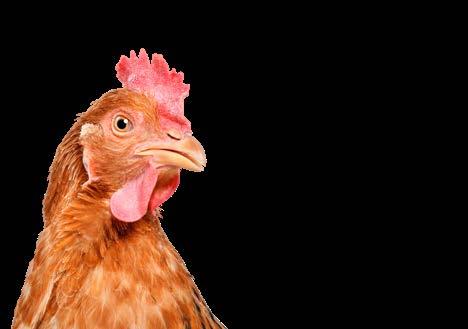
On 20 January, 2025, we submitted our complaint and evidence to the Commerce Commission. We then published an in-depth summary of the complaint on the SAFE website, and gave people the chance to sign their name to support it. In three months, we had more than 10,000 signatures.
Mud farming Pack it in


Mud farming – as it says in the name – is a dirty and cruel practice. We’re working to end it.
Every winter, farmed animals in Aotearoa are forced to live and give birth in cold, wet mud. Officially called ‘intensive winter grazing’, this practice is one of the cruellest and most environmentally damaging practices in Aotearoa. It causes extreme suffering and pollutes our waterways.
We need to ban mud farming urgently to safeguard animals and the integrity of our natural environment.


We’re asking: End mud farming
Why now?
On 23 April, 2024, the Government announced plans to repeal national intensive winter grazing regulations through amendments to the Resource Management Act 1991 (RMA). We have serious concerns that fewer hurdles could mean more mud farms.
Our response
In winter 2024, we made formal written and oral submissions opposing the RMA changes. We also ramped up our mud farming content across our digital channels.
• We released images of two dead ewes in a muddy paddock, which culminated in a major news story on ThreeNews.
• In December 2024, we launched our petition to end mud farming, alongside a nationwide advertising campaign which included billboards, radio ads, TVNZ+ ads, sponsored articles, and digital ads. By March 2025, we had collected more than 10,000 signatures.
• Our radio ads sparked debate amongst the farming community, and Mud Farming Campaign Manager Emma Brodie was invited onto The Country to make SAFE’s case.
We’re grateful to Matt Coffey for his work collecting photographic evidence of mud farms.
Dishing the dirt: Campaign Manager Emma Brodie was invited to speak on ThreeNews, after we released images of two dead ewes on a filthy mud farm.
Photo: Matt Coffey
Fish farming Rotten to its core
Fishes are sentient beings, but fish farming ignores their legal rights.
Intensive fish farming is rife with animal welfare violations. Fishes are forced to live in horrific conditions, enduring poor water quality, rapidly spreading diseases, and skin lesions and skeletal deformities. These appalling conditions mean mortality rates are high.
How we’re helping fishes
We opposed the Resource Management (Extended Duration of Coastal Permits for Marine Farms) Amendment Bill
The Bill (now the Resource Management (Extended Duration of Coastal Permits for Marine Farms) Amendment Act) is a serious blow to fish welfare. We submitted our written opposition, then in June 2024, Fishes Campaign Manager Emily Hall gave an oral submission at the Primary Production Committee select committee.
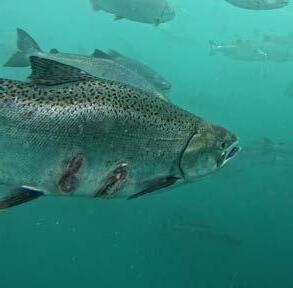
Fishes have legal rights under the Animal Welfare Act 1999, yet the very nature of fish farming neglects the most basic welfare obligations.
We’re demanding that the Government put a stop to this barbaric industry.
We said no to the Fast track Approvals Bill
In October 2024, the Fast-track Approvals Bill (now the Fast-track Approvals Act) proposed projects were announced, including seven new fish farming projects. In response, we published a media release highlighting the welfare breaches and neglect on fish farms, and called for a complete ban. We also joined the Communities Against the Fast-Track Coalition to stand in solidarity with other organisations opposing the bill.
We’re building public opposition
We’re helping the public express their opposition to fish farming. Our email template allows people to contact Prime Minister Christopher Luxon, Minister for Oceans & Fisheries Shane Jones, and the minister responsible for animal welfare, Andrew Hoggard, asking them to ban fish farming. Our intention is to build a groundswell of opposition against this practice, and challenge the social license that supports its existence.
CfA a Commissioner for Animals
Commissioner for Animals alliance
Changing a broken system
Our welfare system fails the animals it was designed to protect. We’re pushing for change.
Aotearoa is failing animals. Our current animal welfare system allows them to be victims of cruelty, exploitation, and neglect. The Government ministers responsible for agricultural productivity are the same ministers responsible for the animals being exploited in the name of profit. In short, our system is designed to favour profit and overlook suffering.
26,201 PEOPLE HAVE SIGNED OUR PETITION
This number will continue to grow at commissionerforanimals.nz
A Commissioner for Animals is a no-brainer
Animals in Aotearoa need independent representation in parliament. Under the current system, profit and productivity take precedence over the legal rights of animals. Having a Commissioner for Animals would offer an independent representative who can give fair and impartial advice that upholds the Animal Welfare Act 1999. The Commissioner for Animals Alliance is our collaborative effort to effect change with other animal welfare and rights organisations.
Our alliance
We’re proud to stand alongside a strong alliance of 15 diverse animal advocacy organisations, united by a shared vision for a fair and independent animal welfare system. Together, and with your support, we’re calling with one voice for the appointment of a Commissioner for Animals.
109% INCREASE in traffic to commissionerforanimals.nz in 2024–25
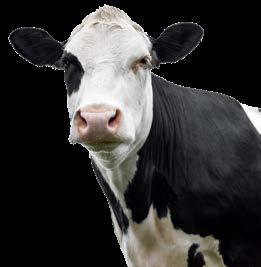
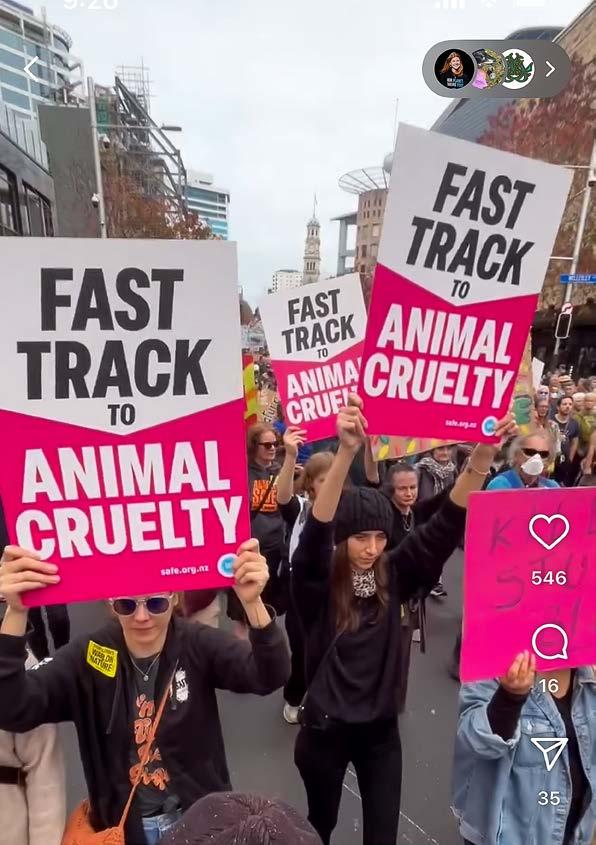
Our digital community of animal allies
Our social media impact
A strong social media strategy is bolstering our support across platforms.
We empowered our supporters
Our social media strategy is designed with our audience at its heart. We prioritise quality over quantity, pursuing thoughtprovoking conversation-starters over click-bait-driven quick wins. We’ve made a conscious effort to change our communication style to ensure we’re speaking with people, not at them. By empowering our supporters and making them feel that they’re an integral part of animal rights solutions – because they are! – we’re creating a flourishing online ecosystem of animal allies.
We engaged with a frustrated Aotearoa
A profound shift in Aotearoa’s political landscape has created fertile ground for our animal rights campaigns. The Government’s controversial approaches to the environment, animal welfare, and Te Tiriti – exemplified in approaches such as the Fast-track Approvals Bill (now the Fast-track Approvals Act) and Regulatory Standards Bill – have ignited a fierce response. Social movements fighting for the environment and animal rights have become bolder and more powerful than ever. The flaws in the status quo are waking people up to our cause.
We embraced intersectional conversations
With a more engaged audience, we’ve seen a major shift in how SAFE is seen within not just the animal rights space, but the larger space of social justice organisations. We stepped into intersectional online collaborations with the likes of School Strike 4 Climate, Greenpeace, and Communities Against the Fast-track.
Intersectional content and collaborations help SAFE reach individuals who might initially be drawn to climate action or indigenous rights, but are then exposed to and educated about animal rights through these shared causes. Not only has this strengthened SAFE’s voice as a leading animal rights organisation, but it has also strengthened our position within the consciousness of everyday New Zealanders.
“
Our supporters are the heroes of our story.
— Ian Munro, Digital & Social Media Manager
Social media, in numbers
SAFE’s social media content reached new heights.
SAFE’s total followers: 192,388 (+3.4% from the previous year)
175,853
14,270
The issues that created noise
Our video on the death of greyhound Brockie’s Rocket went viral, reaching OVER 6
MILLION VIEWS ON INSTAGRAM
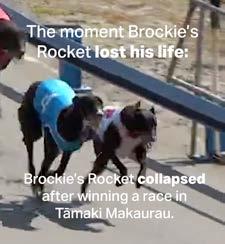
1,094
1,171
Our exposé on Pareora Slaughterhouse also went viral, reaching
OVER 1 MILLION VIEWS ON INSTAGRAM
and millions more on platforms of the numerous organisations who reposted it.
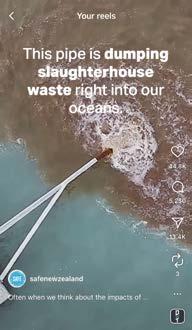
“Our website performance
safe.org.nz continued to resonate with animal-loving Kiwis.
There’s more engagement with our messaging
106% INCREASE
in people spending more than three minutes on the SAFE website.
21% INCREASE in people visiting more than five pages.
70% INCREASE in people taking actions on the website, including signing petitions, emailing MPs, and taking on political submissions.
The numbers speak for themselves; We’re campaigning on issues people care about, and we have quality information on our site for them to engage with. We also noticed an increase in people taking multiple actions in one session, showing that our message extends beyond a single issue, and that people see the need for systemic change.
—Elise Herrera, Digital Communications Specialist
Our website is reaching more people
• Over 65,000 people visited our website from paid digital marketing, largely due to the number of big-budget campaigns we ran (including Mud Farming, Fix the Label and Rodeo).
• We saw 182,904 sessions on the SAFE site, which was an increase of 11.5% year-on-year.
OUR MOST-VISITED ISSUES ON SAFE.ORG.NZ WERE MUD FARMING, EGG LABELLING, AND RODEO. By focusing on Search Engine Optimisation – including educational, accessible, and relevant content – the majority of our traffic is coming from organic search.
Supporting SAFE
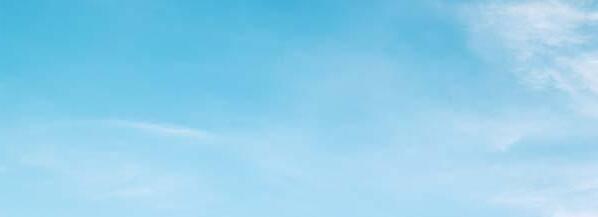
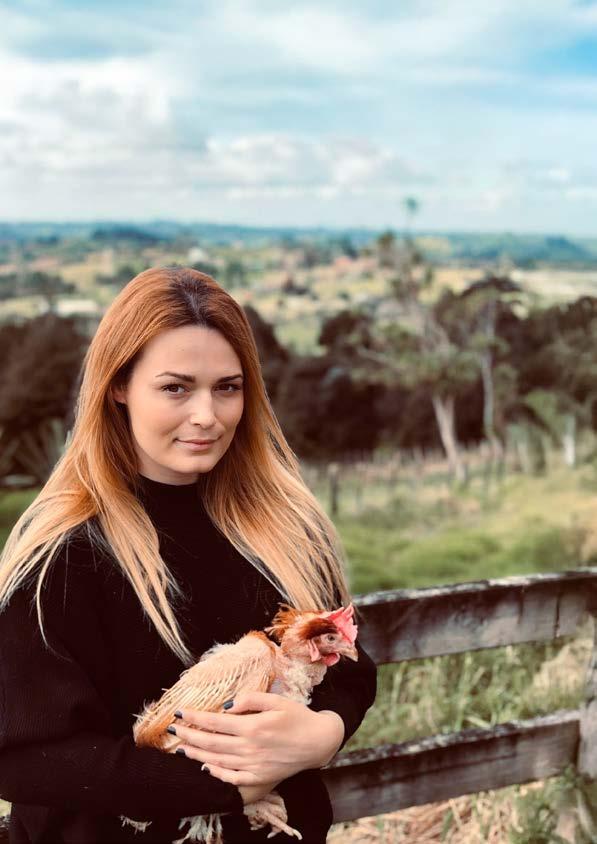
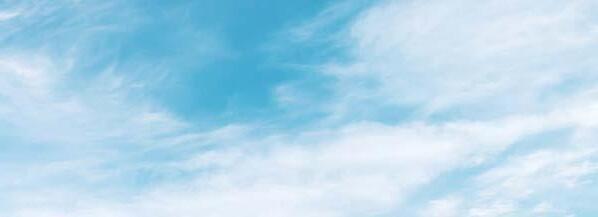
Become an Animal Guardian
SAFE’s Animal Guardians are the generous Kiwis who choose to leave SAFE a gift in their Will. Their legacy of kindness helps us continue our life-changing work for animals.
Leave the gift of compassion in your Will
By leaving a gift in your Will, you’re improving the lives of animals for years to come.
At SAFE, we advocate for the millions of animals exploited in Aotearoa every year.
Learn more about becoming an Animal Guardian:
• safe.org.nz/donate-now/leave-a-bequest
• lyn@safe.org.nz for any questions
A special mention
We’d like to acknowledge the generosity of two wonderful people who have left a legacy to SAFE. The kindness of these individuals will have a lasting impact on our work.
Warwick Elliott Bradshaw
Anne Conwell
We thank the families and trustees for your acknowledgement of our work.
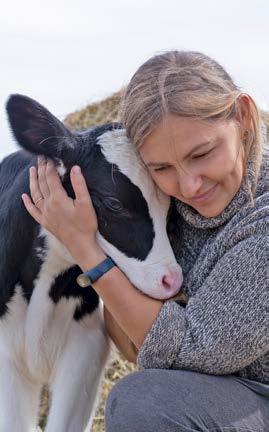
A massive thanks to our Animal Guardians, whose love for animals will be felt well beyond their lifetime.
Join Heart for Animals
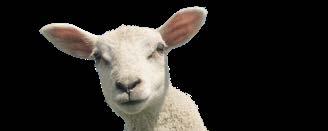
Each monthly donation to our Heart for Animals Regular Giving Programme empowers our critical year-round work and goes towards our animalfocused campaigns.
Learn more about joining Heart for Animals:
• safe.org.nz/donate-now/heart-for-animals
• safe@safe.org.nz
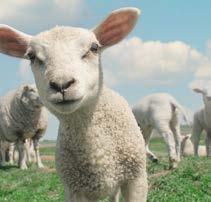
“ “
I believe SAFE will make the most significant long-term difference to animals in Aotearoa. I love that they don’t promote a hierarchy of animals (caring only about domestic animals, for example) and use a broad range of advocacy tools. There is both a realism and a sensitivity in their approach that I appreciate.
– Elizabeth, SAFE supporter of 11 years
I support SAFE because you have a wide exposure and a loud voice for the voiceless. I wait for the day that people wake up. The world will finally be a kinder place.
– Lucy, SAFE supporter of 11 years
“
SAFE’s values align with my own, and it has dedicated staff fighting for animals and giving them a voice. Supporting SAFE is a way I can help animals practically.
– Fiona, SAFE supporter of 10 years
Thank you for your kind and generous support. It enables us to continue working towards a better world for animals.
Heart for Animals
Meet the SAFE team
As you can see, we’re a bunch of big-hearted animal allies.
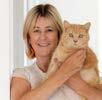
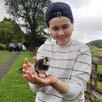
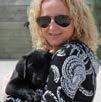
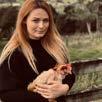

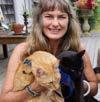


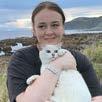
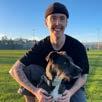
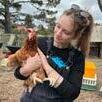
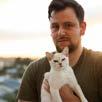
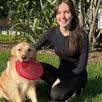
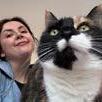

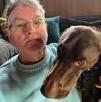
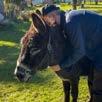
These individuals left their roles at SAFE during 2024–25.

Jessica Chambers HEAD OF CAMPAIGNS
Elise Herrera DIGITAL COMMUNICATIONS SPECIALIST
Ian Munro DIGITAL & SOCIAL MEDIA MANAGER
Debra Ashton CEO
Gerald Jordan DATABASE MANAGER
Isa Kliewer CAMPAIGN COORDINATOR
Michelle Perkins SUPPORTER CARE SPECIALIST
Emily Hall CAMPAIGN MANAGER
Charlie Parker CAMPAIGN COORDINATOR
Samantha Caughey FUNDRAISING MANAGER
Lyn Thomas HEAD OF FUNDRAISING
Gabriel Herrera DIGITAL MARKETING SPECIALIST
Greg Simpson CREATIVE SPECIALIST
Kendall Green FUNDRAISING COMMUNICATIONS SPECIALIST
Emma Brodie CAMPAIGN MANAGER
Belle Ong HEAD OF OPERATIONS
Courtney Tainui PA TO THE CEO
Will Appelbe
Luke Bailey Courtney White
Meet the SAFE board
When they’re not busy with our governance, our Board loves to spend time with animals, too.
“ It’s a privilege to lead the governance of SAFE
with our passionate and experienced Board members.
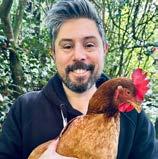
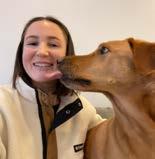
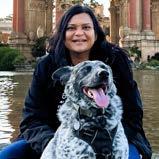
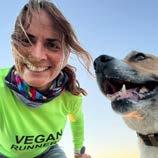
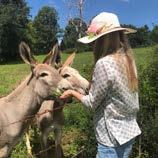
These individuals left SAFE’s Board during 2024–25.


Deepika Lodhia TREASURER
Courtenay Lacey SECRETARY
Kat MacMillan BOARD MEMBER
Troy Coyle BOARD MEMBER
Gareth Hughes BOARD CHAIRPERSON
Katharine Birks
Marcelo Rodriguez Ferrere
Treasurer’s report
For the year ended 31 March, 2025

Deepika Lodhia SAFE Treasurer (since October 2024)
I present this Treasurer’s Report for SAFE, having taken on the role in October 2024.
1. Acknowledgements
I thank our previous Treasurer, Logan Smedley, for his dedicated service. I also extend my thanks to the Chair, Board, CEO, and the management team for their support. My thanks also to former Finance Manager Luke Bailey for his stewardship. Finally, I acknowledge our donors, members, and supporters for enabling SAFE’s work to protect and advocate for animals across Aotearoa.
2. Governance and financial oversight
This year we strengthened governance through:
• Establishing an Audit & Risk Committee with a regular meeting cadence
• Conducting risk workshops to identify and manage risks These initiatives align SAFE with best practice in the charitable sector.
3. Auditors
Lynch & Associates have been appointed as our external auditors, providing independent assurance over SAFE’s financial statements.
4. Financial highlights
Below is a summary of SAFE’s key financial metrics for the year:
5. Subsequent events
During 2025, SAFE recognised a previously unrecorded legacy donation comprising an interest in a property. This has now been appropriately disclosed in the financial statements and reflected in the prior year (2024) reporting period.
6. Future focus
Priorities for the coming year include strengthening reserves, diversifying income, and maintaining prudent operational spending. We will explore ethical, low-risk investment opportunities and continue to enhance Audit & Risk Committee oversight to ensure SAFE’s long-term financial sustainability and impact for animal welfare in Aotearoa.
7. Mission alignment
SAFE’s financial management remains guided by our mission to end animal exploitation and improve animal welfare. A sound financial base ensures we can expand advocacy, education, and campaigns to protect animals for years to come.
With gratitude, ngā mihi.

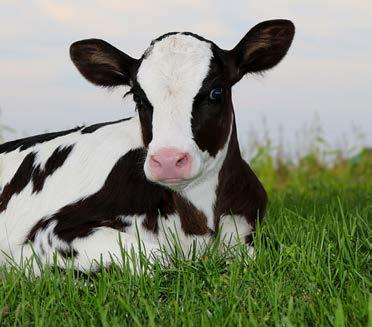
Financial summary
Statement of comprehensive revenue and expenses
Year ended 31 March 2025
Statement of changes in equity
Statement of financial position
Year ended 31 March 2025
Gareth Hughes Chairperson
11/08/2025
Deepika Lodhia Treasurer
11/08/2025
Statement of cash flows
Year ended 31 March 2025
Notes to the financial statements
Year ended 31 March 2025
Notes to the financial statements
Year ended 31 March 2025 5. Property, plant and equipment
Notes to the financial statements
Year ended 31 March 2025 6. Intangible assets
7. Employee entitlements
Notes to the financial statements
Year ended 31 March 2025
8. Commitments and contingencies
9. Financial
Foods Foundation – Commonality of some Trustees and SAFE being a settlor of Future Foods Foundation
11. Events after balance date
There were no events that have occurred after the balance date that would have a material impact on the Performance Report. (Last Year – nil)
12. Key
Statement of financial position
Year ended 31 March 2025
13. Correction of errors
During 2025, the organisation realised that a property left in a legacy from 2014 and transferred to an 85% share of ownership by SAFE in 2018 was not recognised in the financial statements. Subsequently assets have been understated. The error has been corrected by restating the prior period opening balance of assets and equity. As it's only practical to calculate the value of the asset at the earliest of 2024 this is the consideration that has been used retrospectively for this error. There is no impact on the total operating, investing or financing cash flows for the year ended 31 March 2025.
* A full set of these financials can be found on charities.govt.nz
Independent auditor’s report 2025
To the Board of Save Animals From Exploitation Incorporated
Report on the financial statements
Opinion
We have audited the accompanying performance report* of Save Animals from Exploitation Incorporated (‘SAFE’) on pages 2 to 11, which comprise the entity information, statement of service performance, statement of comprehensive revenue and expenses, statement of changes in equity and the statement of cash flows for the year ended 31 March 2025, the statement of financial position as at 31 March 2025, and notes to the financial statements including the statement of accounting policies.
In our opinion, the accompanying performance report presents fairly, in all material respects:
• The financial position of SAFE as at 31 March 2025, and its financial performance and cash flows for the year then ended;

Lynch and Associates Limited
B:HIVE
Smales Farm
74 Taharoto Rd Takapuna Auckland 0622
T: +64 9 366 6005
E: admin@laaca.co.nz
W: www.laaca.co.nz
Our responsibilities under those standards are further described in the Auditor’s Responsibilities for the Audit of the performance report section of our report. We are independent of SAFE in accordance with Professional and Ethical Standard 1 International Code of Ethics for Assurance Practitioners (New Zealand) issued by the New Zealand Auditing and Assurance Standards Board, and we have fulfilled our other ethical responsibilities in accordance with these requirements. We believe that the audit evidence we have obtained is sufficient and appropriate to provide a basis for our opinion. Other than in our capacity as an auditor we have no relationship with, or interests in, SAFE.
Other information
• The service performance for the year ended 31 March 2025, in accordance with SAFE service performance criteria,
in accordance with Public Benefit Entity Standards Reduced Disclosure Regime (“PBE Standards RDR”) issued by the New Zealand Accounting Standards Board.
Basis for Opinion
We conducted our audit of statement of comprehensive revenue and expense, statement of changes in equity, statement of financial position, statement of cash flows, statement of accounting policies and notes to the financial statements in accordance with International Standards on Auditing (New Zealand) (ISAs (NZ)), the audit of the statement of service performance in accordance with NZ Auditing Standard (NZ AS) 1 (Revised) The Audit of Service Performance Information.
The Board is responsible for the other information. The other information obtained at the date of the auditor’s report is information contained in the performance report, but does not include the entity information, statement of service performance, the financial statements, and our independent auditor’s report. Our opinion on the performance report does not cover the other information and we do not express any form of audit opinion or assurance conclusion thereon.
Responsibilities of the Board for the performance report
The Board are responsible on behalf of SAFE for:
a. The preparation and fair presentation of the statement of service performance and the financial statements in accordance with PBE Standards RDR issued by the New Zealand Accounting Standards Board;
b. The service performance criteria that are suitable in order to prepare service performance information in accordance with PBE Standards RDR; and
c. For such internal control as the Board determines is necessary to enable the preparation of the statement of service performance and the financial statements that are free from material misstatement, whether due to fraud or error.
In preparing the performance report, the Board is responsible on behalf of SAFE for assessing the entity’s ability to continue as a going concern, disclosing, as applicable, matters related to going concern and using the going concern basis of accounting unless the Board either intends to liquidate the entity or to cease operations, or have no realistic alternative but to do so.
Auditor’s Responsibilities for the audit of the performance report
Our objectives are to obtain reasonable assurance about whether the entity information, statement of service performance and the financial statements as a whole, are free from material misstatement, whether due to fraud or error, and to issue an auditor’s report that includes our opinion. Reasonable assurance is a high level of assurance but is not a guarantee that an audit conducted in accordance with ISAs (NZ) will always detect a material misstatement when it exists. Misstatements can arise from fraud or error and are considered material if, individually or in the aggregate, they could reasonably be expected to influence the economic decisions of users taken on the basis of these financial statements.
As part of an audit in accordance with ISAs (NZ), we exercise professional judgement and maintain professional scepticism throughout the audit. We also:
• Identify and assess the risks of material misstatement of the financial statements, whether due to fraud or error, design and perform audit procedures responsive to those risks, and obtain audit evidence that is sufficient and appropriate to provide a basis for our opinion. The risk of not detecting a material misstatement resulting from fraud is higher than for one resulting from error, as fraud may involve collusion, forgery, intentional omissions, misrepresentations, or the override of internal control.
• Obtain an understanding of internal control relevant to the audit in order to design audit procedures that are appropriate in the circumstances, but not for the purpose of expressing an opinion on the effectiveness of the entity’s internal control.
• Evaluate the appropriateness of accounting policies used and the reasonableness of accounting estimates and related disclosures made by management.
• Evaluate whether the service performance criteria are suitable as at to result in service performance information that is in accordance with the applicable financial reporting framework.
• Conclude on the appropriateness of the use of the going concern basis of accounting by the Board and, based on the audit evidence obtained, whether a material uncertainty exists related to events or conditions that may cast significant doubt on the entity’s ability to continue as a going concern. If we conclude that a material uncertainty exists, we are required to draw attention in our auditor’s report to the related disclosures in the financial statements or, if such disclosures are inadequate, to modify our opinion. Our conclusions are based on the audit evidence obtained up to the date of our auditor’s report. However, future events or conditions may cause the entity to cease to continue as a going concern.
• Evaluate the overall presentation, structure and content of the financial statements, including the disclosures, and whether the financial statements represent the underlying transactions and events in a manner that achieves fair presentation.
We communicate with the Board, among other matters, the planned scope and timing of the audit and significant audit findings, including any significant deficiencies in internal control that we identify during our audit.
Restriction on Distribution or Use
This report is made solely to the Board of SAFE. Our audit work has been undertaken so that we might state to the Board those matters which we are required to state to them in an auditor’s report and for no other purpose. To the fullest extent permitted by law, we do not accept or assume responsibility, to anyone other than the Board, for our audit work, for this report or for the opinions we have formed.
Lynch & Associates Limited
Auckland 11 August 2025
* Lynch & Associates were provided with the full set of Financial Statements, and their independent auditor's report pertains to this full set, which can be found on charities.govt.nz

